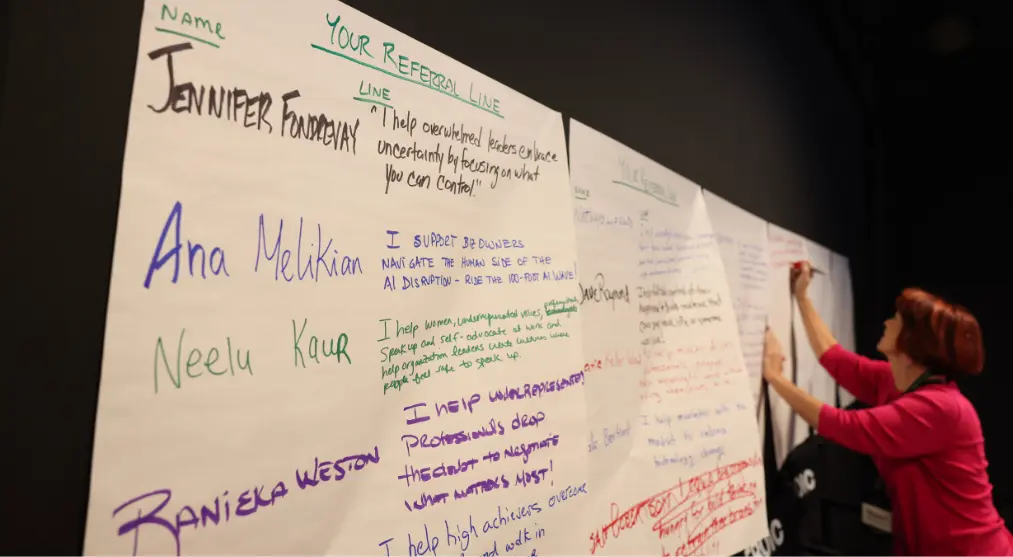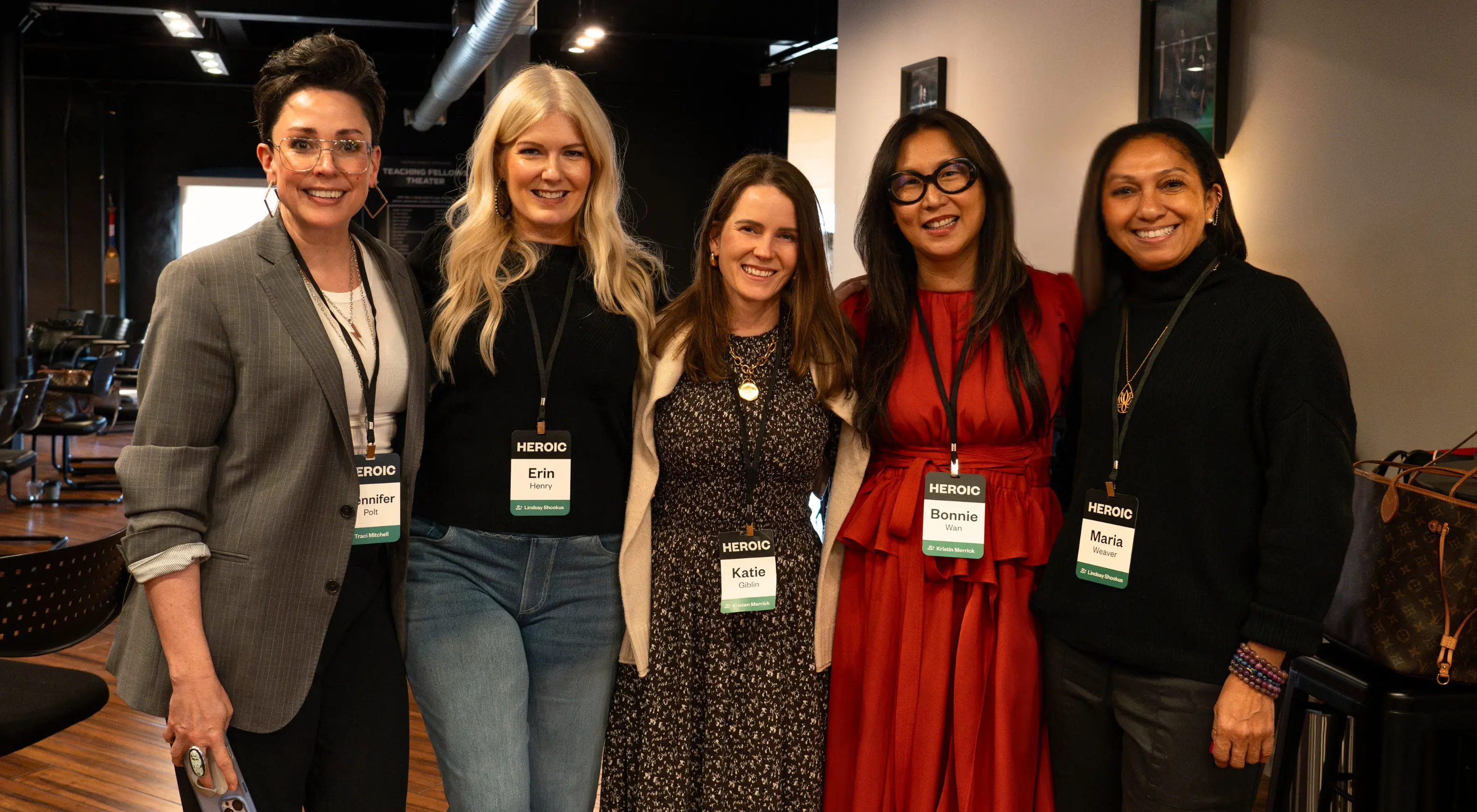#2 Stay in Touch, Stay Up to Date
As speakers, we’re almost constantly developing and testing new material and crafting or refining our signature speech. That’s why it’s so important to connect with your referral ring frequently. Let them know when you launch a new speech or have an upcoming event nearby.
Make sure you're allowing time and opportunity to see each other speak. It’s a great way to stay in touch (and it’s always nice to see a friendly face in the front row).
Keynote speaker, author, and HEROIC Business Faculty Kris Kelso and I have been part of a speaker study group since 2020. We’ve met every Tuesday and Thursday for the last five years to give feedback and work together on our TEDx talks, keynotes, and workshops.
Today, we consistently refer each other for events, because we are very familiar with each other’s work and trust in the reliability and value of our speeches. We don’t speak on the same topic, but we both speak to similar audiences: executives, leadership teams, and corporate audiences. This makes our referral relationship profitable for both of us.
#3 Have Your Referral Materials Ready
For your referral ring to work like a well-oiled machine, you need to make the referral process as easy as possible for your fellow speakers.
To do this, you need to have the following materials ready and updated:
- A short, focused introduction paragraph
- Your speech’s session description
- Fee information (your referrer won’t share your fee with the event organizer, but it’s important for them to make sure your fee is within their price range)
- A video of your entire speech (yes, the whole thing)
You’ll send these materials to the speakers in your referral ring, and they’ll send their materials to you. That way, you can easily and efficiently send each other’s information to event planners when the time is right.
Make sure you keep your referral materials up to date so your referral ring speakers can send accurate information to event organizers when they make the introduction.
In GRAD | Speaking Business Mastery, we show you exactly how to create and gather the referral assets you need to send to your referral ring speakers and when (and how) to follow up with event planners to refer speakers. There’s even a simple and ultra-effective email template you can use to reach out to your past clients and recommend speakers for upcoming events.
A Virtuous Cycle of Collaborative Success
When I moved to Phoenix, I met Ana Melikian, a fellow HEROIC Alumni and Business Faculty, keynote speaker, and top 1% podcaster. She introduced me to Meeting Professionals International (MPI), and I went to a few of their events and wrote about them on LinkedIn.
Later, I had the opportunity to be the keynote speaker at their conference in 2024. In our conversations in preparation for the event, they mentioned that one of the topics they usually cover is burnout. Ana immediately came to mind because she speaks about burnout in a very unique and creative way. I told them I knew a fantastic speaker who actually leverages AI to help audiences tackle burnout.
They already had a speaker for that year, but after the conference, I mentioned Ana again and introduced her to the event organizer who had hired me. Long story short, Ana will be the keynote speaker for this year’s EduCon event.
That’s just one example of the virtuous cycle of referrals that you can create by introducing and referring your fellow speakers. Its effect compounds your reach and earns you valuable speaking opportunities. Ana made the initial introduction, which led to my delivering a keynote, then recommending her speech, which led to Ana delivering the following year’s keynote.
Building and maintaining a referral ring gives you a significant competitive advantage as a speaker.
Just think about it: event organizers are constantly bombarded with speaker pitches, marketing emails, and cold outreach. When a speaker they know, trust, and value recommends someone for their event, that referral jumps to the front of the line.
Whether you’re the speaker who’s referring a fellow speaker to event organizers or the one who’s being referred, you are a valuable asset to event planners. As you create and nurture your referral ring and strengthen your relationships with fellow speakers, you’ll be able to earn more speaking opportunities and solidify relationships with meeting planners. Referring other speakers will become a virtuous cycle of collaboration.








.svg)










%20(1)%20(1).webp)
%20(1)%20(1).webp)
.webp)
